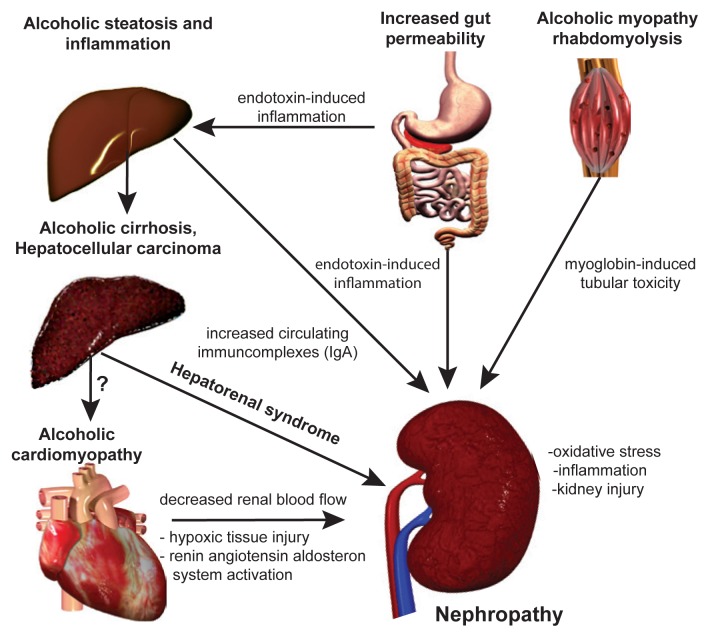Figure.
Possible mechanism for alcohol-induced kidney injury. Chronic alcohol consumption induces profound injury in several organs that may affect and aggravate the deleterious effect of ethanol on the kidney. Ethanol itself markedly induces the expression of the microsomal ethanol oxidation system (CYP2E1), producing reactive oxygen species as a byproduct. Increased gastrointestinal permeability and endotoxin load may lead to alcoholic steatohepatitis resulting in excessive immunoglobulin A (IgA) load (due to increased intestinal production and decreased hepatic IgA clearance). IgA deposits may accumulate in the kidney, leading to glomerulopathy. Renal microcirculatory alterations in advanced liver cirrhosis leads to hepatorenal syndrome. Alcohol-induced skeletal muscle damage leads to excessive amounts of circulating myoglobin, causing renal tubular injury as a result of increased oxidative stress. Due to the development of alcoholic cardiomyopathy, chronic renal hypoxia develops, activating the renin–angiotensin–aldosterone system (RAAS), which in turn leads to further free radical production and to the propagation of fibrotic pathways.

